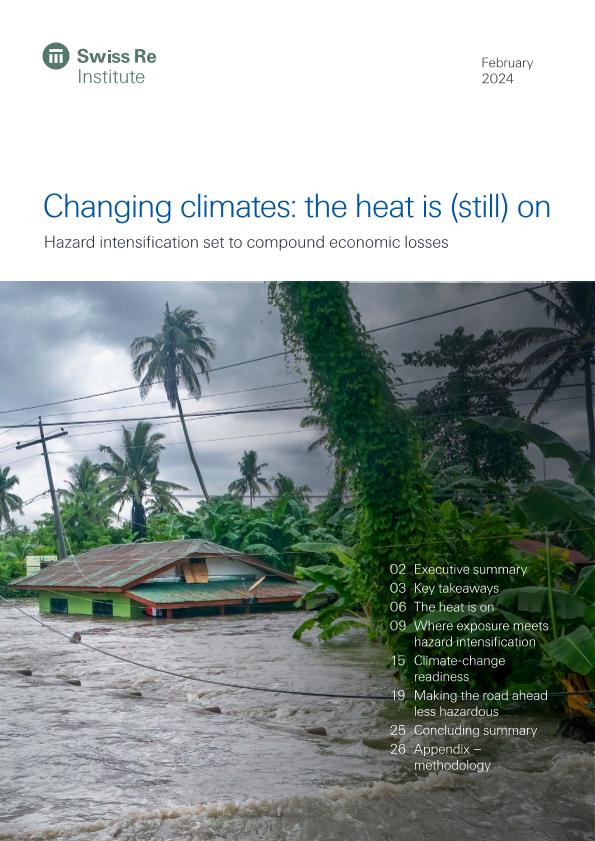Changing climates: the heat is (still) on : hazard intensification set to compound economic losses

Contenido multimedia no disponible por derechos de autor o por acceso restringido. Contacte con la institución para más información.
| Tag | 1 | 2 | Valor |
|---|---|---|---|
| LDR | 00000cam a22000004b 4500 | ||
| 001 | MAP20240003791 | ||
| 003 | MAP | ||
| 005 | 20240229171743.0 | ||
| 008 | 231215s20240201che|||| ||| ||eng d | ||
| 040 | $aMAP$bspa$dMAP | ||
| 084 | $a328.1 | ||
| 245 | 0 | 0 | $aChanging climates: the heat is (still) on$b: hazard intensification set to compound economic losses$cChandan Banerjee... [et al.] |
| 260 | $aZurich$bSwiss Re Institute$c2024 | ||
| 300 | $a28 p. | ||
| 520 | $aIn this study, it combines the insurance knowledge of property damage resulting from natural disasters with new scientific evidence from the IPCC on the probability (low, medium, high) of more severe weather conditions. To date, the main drivers of rising losses have been economic growth and urbanisation. Climate change plays a relatively small role today, but we expect associated losses to accumulate and contribute more in the future. The analysis covers 36 countries and focuses on four major weather perils: floods, tropical cyclones, winter storms in Europe and severe convective storms. These are the main loss-inducing perils for the insurance industry today and account for the largest share of economic losses from natural disasters globally. As of today, in terms of property impact, these perils cause expected economic losses of USD 200 billion annually. This is just the lower bound of all potential losses, as not all weather perils (eg, heatwaves) are covered, and only property losses are accounted for. As changing climates fuel weatherevent intensity, loss potential will likely rise | ||
| 650 | 4 | $0MAPA20080574932$aCambio climático | |
| 650 | 4 | $0MAPA20080600204$aCatástrofes naturales | |
| 650 | 4 | $0MAPA20080629755$aSeguro de riesgos extraordinarios | |
| 650 | 4 | $0MAPA20130005317$aPérdidas máximas por siniestros | |
| 650 | 4 | $0MAPA20080608392$aRiesgos meteorológicos | |
| 650 | 4 | $0MAPA20080611880$aPerspectivas del seguro | |
| 700 | 1 | $0MAPA20220006583$aBanerjee, Chandan | |
| 710 | 2 | $0MAPA20170013402$aSwiss Re Institute |

